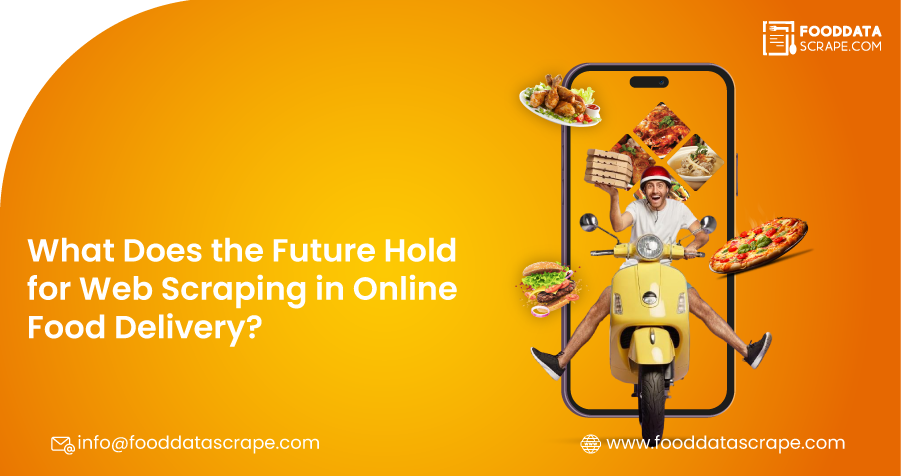Introduction
Web scraping has become a necessity for all industries. Its impact on the Future of Web Scraping in Online Food Delivery is highly significant. The astronomical growth of Uber Eats, Grubhub, DoorDash, and Just Eat has made gathering, analyzing, and using real-time data extremely important. With technology integration, the Future of Data Scraping for Food Delivery Services holds promises of greater efficiency, competitive market intelligence, and personalized customer experience. Today, companies are all the more dependent on web scraping by utilizing insights from competitor pricing, restaurant menus, customer reviews, and delivery times. The data thus gathered helps businesses improve services, optimize pricing strategies, and adapt to changes in consumer preferences. As the food delivery industry grows, web scraping will be the driving force for innovation, creating new ways businesses can stay competitive and customer-focused. The technology has endless potential and continues to advance toward smarter data-driven decision-making.
The Rise of Web Scraping in the Food Delivery Industry
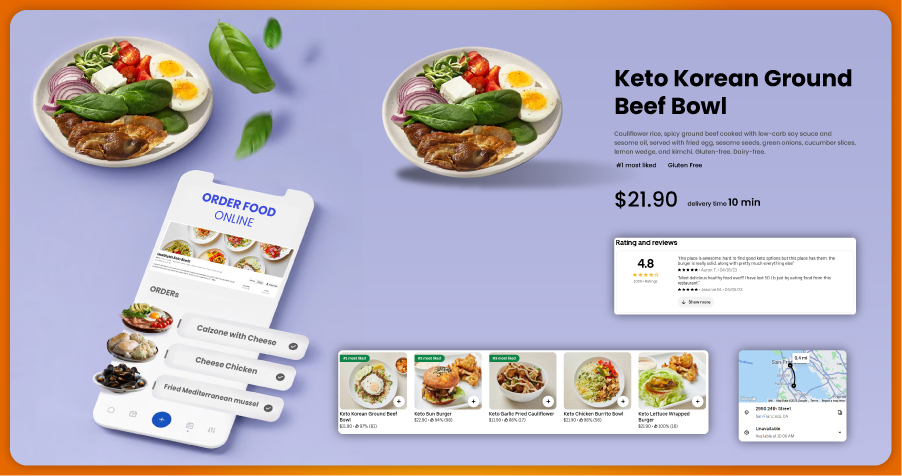
Food delivery has increased significantly in the last few years, mainly due to changing consumer habits, the proliferation of mobile technology, and a growing need for convenience. With millions of restaurants offering their menus online and consumers getting their meals through delivery platforms, abundant data is present on those platforms. That is where web scraping plays a very significant role.
Web Scraping Technologies for the Food Delivery Industry help businesses gather large datasets from various platforms, such as restaurant menus, pricing, customer reviews, delivery times, and service availability. This helps companies enhance operations, optimize pricing strategies, understand customer preferences, and monitor competitors in real time.
As consumers' expectations keep evolving, businesses desire to harness the power of web scraping to gain more relevant data and process and analyze it more effectively. Shaping the Future of Data Collection in the Food Delivery Industry, companies can make better-informed decisions faster than ever before. In the future, there will be more significant growth in the role of the web scraping industry in Food Delivery Data Scraping Services .
Unlock the Power of Food Delivery Data Scraping with Food Data Scrape. Keep your Business Competitive!
Optimizing Pricing and Menu Strategy
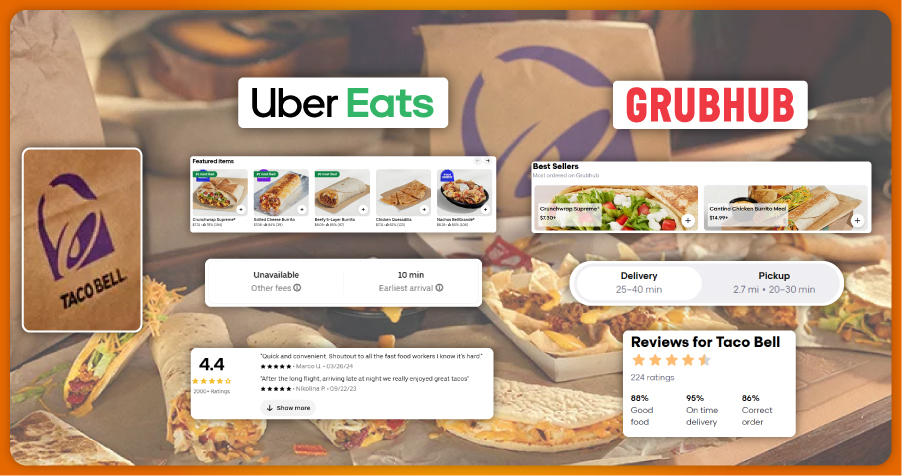
Pricing is one of the most critical factors influencing the success of a food delivery platform. With web scraping, businesses can track competitors' pricing structures across various platforms in real-time, allowing them to adjust their own pricing dynamically. Whether tracking discounts, delivery fees, or promotional offers, web scraping enables food delivery services to remain competitive and flexible in a rapidly changing market.
For example, scraping data from Uber Eats or Grubhub can provide insights into the pricing of similar items across different cities or regions. This helps food delivery companies tailor their offerings to market conditions and customer preferences. Additionally, web scraping can monitor seasonal variations in demand, allowing for dynamic pricing that adjusts based on demand fluctuations during holidays or special events.
Restaurant Menu Data Scraping is also a game-changer. Food delivery platforms can offer enhanced search functionalities and more personalized recommendations by collecting detailed data on menu items, ingredients, and nutritional information. Consumers are increasingly concerned with health-conscious dining options, and platforms offering tailored recommendations based on dietary preferences or past orders will have a significant advantage. The Future of Data Extraction in the Food Delivery Industry is paving the way for platforms to offer these innovative features.
Improving Delivery Efficiency and Customer Experience
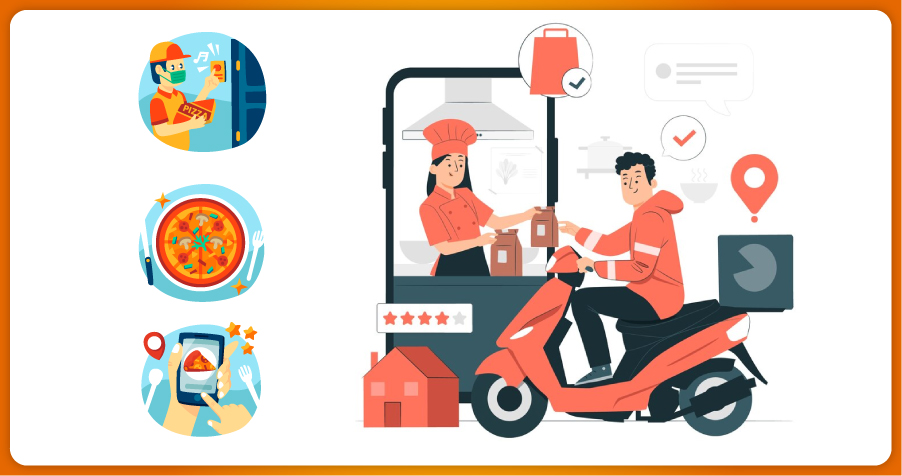
Web scraping plays a significant role in optimizing delivery times and improving the overall customer experience. Food delivery platforms can develop algorithms that predict delivery windows more accurately by scraping data about traffic patterns, weather conditions, and restaurant processing times. For example, a platform could aggregate data from Google Maps to track traffic congestion in real time, adjusting estimated delivery times accordingly. Additionally, platforms can monitor customer reviews and feedback about delivery speed. Analyzing review data helps identify bottlenecks or areas where customers experience delays. Companies can use this data to refine their logistics, adjust driver assignments, or optimize routes to improve efficiency.
As customer experience becomes a competitive differentiator, companies will look to reliable Food delivery Intelligence services to gain actionable insights from reviews, ratings, and feedback. For instance, scraping customer sentiment from social media or review websites like Yelp or TripAdvisor can highlight areas where food delivery platforms are excelling or need improvement. This allows businesses to make data-driven decisions that improve their service offerings and retain customers.
Monitoring Competitors and Market Trends
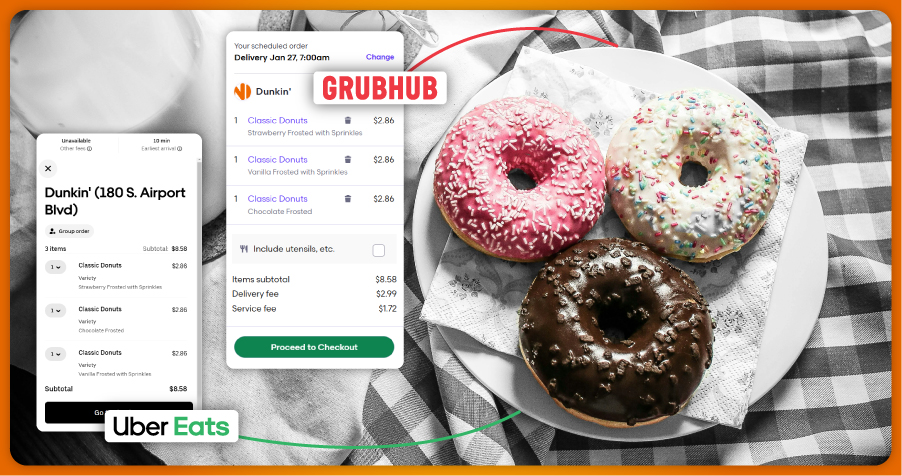
The highly competitive nature of the food delivery industry means that staying ahead of the competition is essential. Companies can use Restaurant Data Intelligence Services to track their competitors' pricing, promotional strategies, service offerings, and menu changes. This real-time market intelligence enables businesses to make strategic decisions, such as adjusting their pricing strategies, creating new menu items, or introducing new delivery features to attract customers.
Monitoring competitor data also helps food delivery platforms identify emerging trends. For instance, a sudden increase in the menu of plant-based food options could signal a shift in consumer preferences toward vegan or vegetarian meals. Web scraping can give businesses early access to such trends, allowing them to adapt quickly and capture new market opportunities before competitors.
Gathering and analyzing competitor data at scale can also aid in market expansion. By scraping data on customer demographics, pricing models, and regional preferences, businesses can identify underserved markets or regions where their offerings may be in high demand. This allows companies to tailor their entry strategy, including localizing menus or adjusting prices to suit the tastes and preferences of different regions.
Enhancing Personalization and Targeted Marketing

One of the most exciting future web scraping applications in the food delivery sector is the ability to enhance personalization. As the industry becomes more data-driven, food delivery platforms can leverage Food Delivery Scraping API Services to more deeply understand their customers' behaviors and preferences.
By scraping data from social media platforms, online reviews, and customer interactions, businesses can gain insights into consumer tastes, dining habits, and even sentiment around specific food types or brands. This data can be used to personalize recommendations, such as suggesting meals based on a customer's previous orders or dietary restrictions.
For example, customers who frequently order gluten-free food could receive recommendations for new gluten-free dishes or restaurants that offer gluten-free options. Similarly, platforms could offer time-sensitive promotions, such as discounts for customers who frequently order during lunch hours or special offers for certain regions based on local preferences.
Web scraping also facilitates the creation of targeted marketing campaigns. By analyzing demographic data, order history, and location-based preferences, businesses can create hyper-targeted ads that appeal directly to the needs of specific customer segments. This level of personalization can drive customer loyalty and increase conversion rates.
Legal and Ethical Considerations
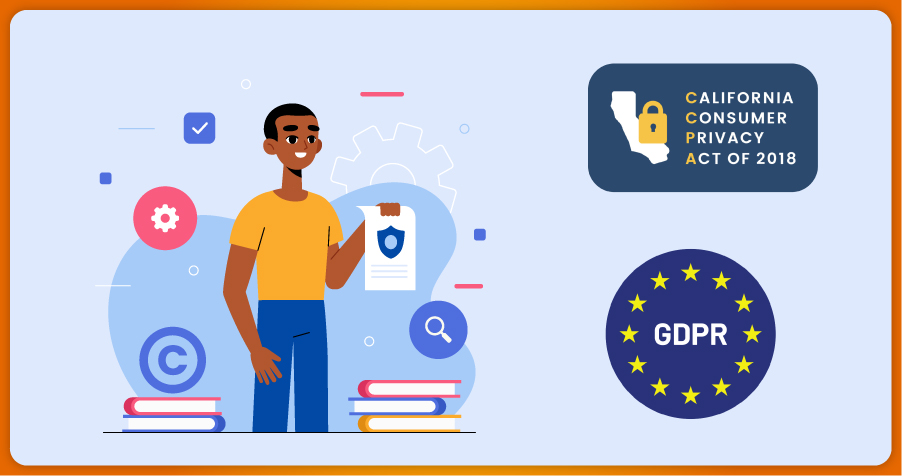
As web scraping becomes an even more powerful tool in the food delivery industry, businesses must also be mindful of the legal and ethical considerations surrounding its use. The data being scraped is often proprietary, and scraping it without permission could lead to legal challenges. Companies must ensure that they comply with laws such as the GDPR and the CCPA, which govern the collection and use of personal data.
Food delivery companies must also be cautious about the ethical implications of scraping data. For example, scraping data on restaurant performance could raise concerns about fairness if it puts undue pressure on small businesses. Scraping user reviews could also be seen as intrusive if customers feel their feedback is being used for commercial purposes without consent.
Food delivery businesses should prioritize transparent data practices, implement robust security measures, and obtain necessary permissions for data scraping activities to navigate these challenges. Building trust with customers and restaurant partners will be essential to the long-term success of any web scraping strategy.
The Role of Artificial Intelligence and Machine Learning
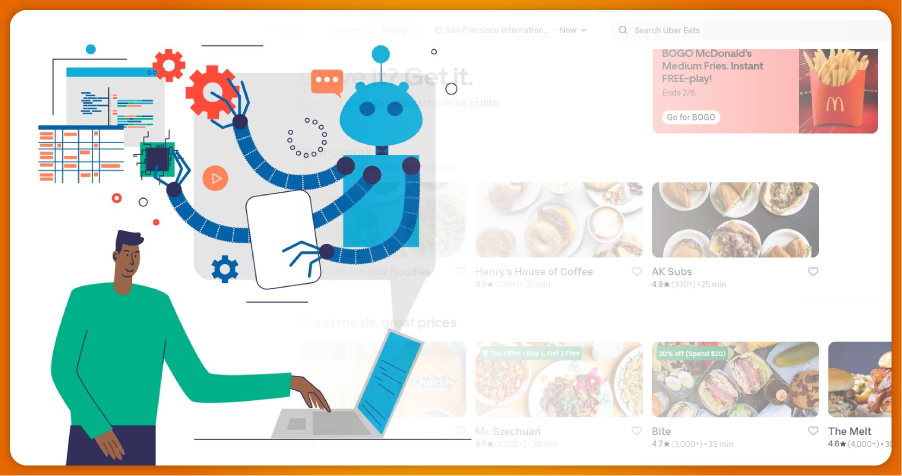
Looking ahead, the integration of artificial intelligence (AI) and machine learning (ML) with web scraping is set to revolutionize the food delivery sector. As data volumes grow, AI and ML technologies will enable companies to process and analyze data more efficiently, extracting actionable insights that can drive strategic decisions.
AI-powered algorithms can automate data extraction, categorize information more accurately, and provide advanced predictive analytics. For example, using ML, businesses can forecast demand more precisely by analyzing historical data on weather, holidays, and special events and adjusting delivery strategies accordingly. Additionally, AI can be used to improve personalization algorithms, ensuring that customers receive more relevant recommendations based on their individual preferences.
In the near future, food delivery platforms can expect to rely more heavily on AI-driven data analytics to enhance every aspect of their operations, from pricing optimization to customer service and delivery management. Web scraping will be central in feeding these AI models with high-quality, real-time data.
Conclusion
The future of web scraping in the food delivery sector is auspicious. As the industry continues to evolve and consumer expectations rise, the ability to gather, analyze, and act on real-time data will become more essential than ever. From pricing optimization and competitor analysis to enhanced customer experiences and personalized marketing, Food Price Dashboard offers food delivery platforms a powerful way to stay competitive in a fast-paced market.
However, businesses must also be mindful of the legal and ethical challenges of web scraping. Companies can unlock the full potential of web scraping while building trust with their customers and partners by ensuring compliance with data protection regulations and using Food Delivery Datasets responsibly.
As AI and machine learning technologies continue to evolve, integrating these technologies with web scraping will further elevate the food delivery industry. The future promises an even more data-driven, personalized, and efficient food delivery ecosystem, and web scraping will be at the heart of it all.
If you are seeking for a reliable data scraping services, Food Data Scrape is at your service. We hold prominence in Food Data Aggregator and Mobile Restaurant App Scraping with impeccable data analysis for strategic decision-making.






















































































